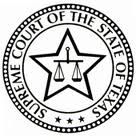Mighty quick ruling from the Supreme Court.
The Supreme Court of Texas on Friday struck down a challenge by Nestle Inc. and two other businesses targeting the state’s franchise tax.
Lawyers for Nestle and two Texas-based companies, Switchplace LLC and NSMBA, sued the state this year and argued that the tax violated the Texas Constitution’s statement that taxes must be “equal and uniform.”
The franchise tax was revised during a 2006 special session, part of a plan to create more funding for public schools. The revision expanded the kinds of businesses subject to the tax, and made eligible companies like Nestle who manufactured outside of Texas. Retail and wholesale businesses now pay one-half of a percent of their taxable margins, while manufacturers pay 1 percent.
But the Legislature designated companies like Nestle “unitary entities,” meaning that even if they did not manufacture in Texas, they should pay the higher rate.
According to a statement by Supreme Court of Texas staff attorney Osler McCarthy, Nestle argued that it was forced to pay double what it owes. It said the differentiation between manufacturing businesses and retailers violates both the U.S. Constitution’s commerce clause, because it discriminates against “interstate commerce,” and the Texas Constitution’s call for “uniformity.”
Six justices of the state’s Supreme Court, agreeing with lawyers for the comptroller and the attorney general, wrote that where the manufacturing happens does not matter in the context of the franchise tax. Because it is applied equally to manufacturers who do business in Texas, there is nothing wrong with Nestle’s being charged the higher rate. “Location is not the basis for different treatment because in-state companies that manufacture will pay the same rate as Nestle,” wrote Justice Nathan Hecht in the court’s opinion, “and out-of-state companies that do only wholesaling and retailing will qualify for the lower rate.
Justices Don Willett and Debra Lehrmann dissented from the opinion, explaining that the Supreme Court did not have jurisdiction to hear the case. “The Tax Code disallows taxpayer suits like this,” Willett wrote, “and as a prudential matter, deciding whether a statute is constitutional is simply not the stuff of mandamus,” or in other words, not the kind of thing the court should address.
See here, here, here, and here for the history. I suppose there was one Justice who either was recused or sided with the plaintiffs; the story doesn’t say. The deadline for the court’s decision was November 9, so clearly they weren’t letting any moss grow. This apparently brings to an end the aspects of the law that can be challenged in state court, but an appeal to the Fifth Circuit and ultimately SCOTUS is possible, since the Texas Supreme Court relied on the Commerce Clause in its ruling. So no new lawsuits, but the final chapter of this story has not yet been written. SCOTX Blog
Related Posts:

